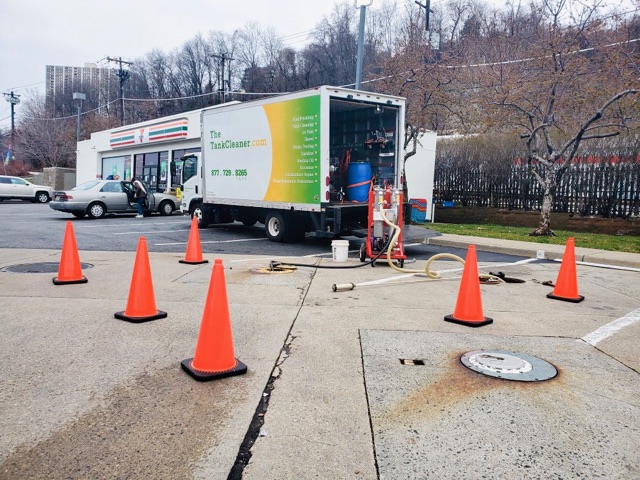Tank Cleaning
Do you struggle with...
Filters Clogging Fast?
Pumps Running Slow?
Veeder Root Readings Off?
Constantly Changing Filters?
We Can Help!

If you answered yes to any of these questions, then chances are your fuel tanks. have sediment and/or water in them and may only require a quick, simple, cost effective tank cleaning and fuel polishing to resolve the issues.
Services

About the Process
Fuel Polishing Basics
Is trouble brewing in your tank? Today’s fuel injection systems and electronic unit injectors operate at very high pressures and tight tolerances. Water and contaminants present in your fuel can destroy these critical components in no time. If this is a problem for you, fuel polishing may be the solution.
What Is Fuel Polishing?
Simply put, fuel polishing is the process of reversing oxidation, removing both free and entrained water, contaminants and sludge from your fuel that will build-up in the tank over time. Polishing will also keep your fuel in optimal condition at all times.
Why Is Fuel Cleanliness Important?
Poor fuel quality is a leading cause of engine performance problems. With today’s increasingly complex engine and injection systems, the tolerances are even tighter. Even small amounts of contaminants can cause loss of power, incomplete combustion, excessive emissions and injector failure; all of which lead to increased operating costs.
So, How Does It Work?
A trained service technician will come to your facility, dock or job-site with one of our mobile fuel polishing systems. These fully containedunits operate similar to a kidney loop by cycling fuel through a series of lters and fuel conditioners that clean, dry and restore your fuel to “clear & bright” condition. And there’s no need to enter your tank.
How Do I Know if My Fuel Is Contaminated?
Eco Logic will visit your site and perform a FREE evaluation and sampling of your fuel so you can see for yourself what is lurking in your tank!
Did You Know?
Ultra Low Sulfur Diesel (ULSD) fuel has more problems with microbial contamination than previous higher sulfur fuels. Since ULSD can no longer carry water dissolved in solution, more water is shedding to the bottom of fuel tanks, creating a life-support system and breeding ground for microbes. Paran content has increased as sulfur and aromatics decrease, providing a major food source to microbes.
